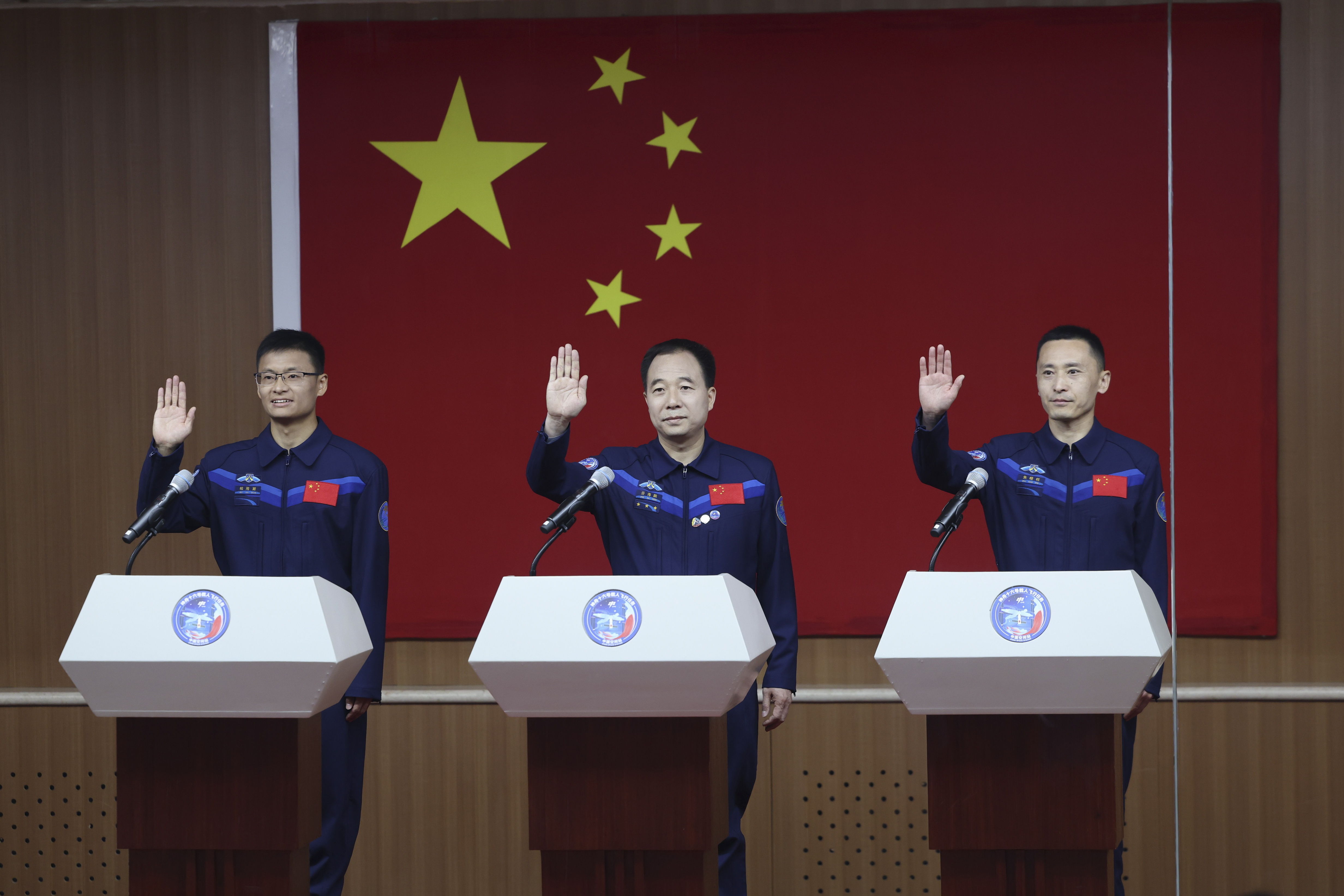Can Astronauts Wear Glasses?
By Staff Reporters
This photo shows Chinese taikonauts Jing Haipeng, Zhu Yangzhu (Right) and Gui Haichao (Left) who carry out the Shenzhou-16 spaceflight mission. (PHOTO: XINHUA)
On May 29, three astronauts on Shenzhou-16, commander Jing Haipeng, flight engineer Zhu Yangzhu and payload expert Gui Haichao, officially met with the public. Gui is a professor at Beihang University, and it came as a surprise to many people who used to believe that exceptional eyesight is a must for those who travel to space, when they saw that he wears glasses.
Yang Liwei, deputy chief designer of China's manned space flight project, said the selection criteria for astronauts have become more scientific. "The selection criteria used to be relatively simple. Astronauts were both pilots and engineers. With the development of engineering, the division of labor has become more detailed, scientific experiments have become more specialized, and the selection criteria for different tasks are also different. Though high myopia is not acceptable, low myopia is still possible," he said.
With the development of China's manned space flight project, the operations required to conduct scientific experiments in the space station are becoming more and more professional. Astronauts are usually divided into three categories, one is the space pilot, another is the space engineer, and the third is the payload expert. The selection criteria are different according to different tasks to be conducted, and the scope of selection has also expanded. For example, the astronauts serving as payload experts can come from universities and research institutions, or be multi-industry personnel engaged in space science research and applications.



